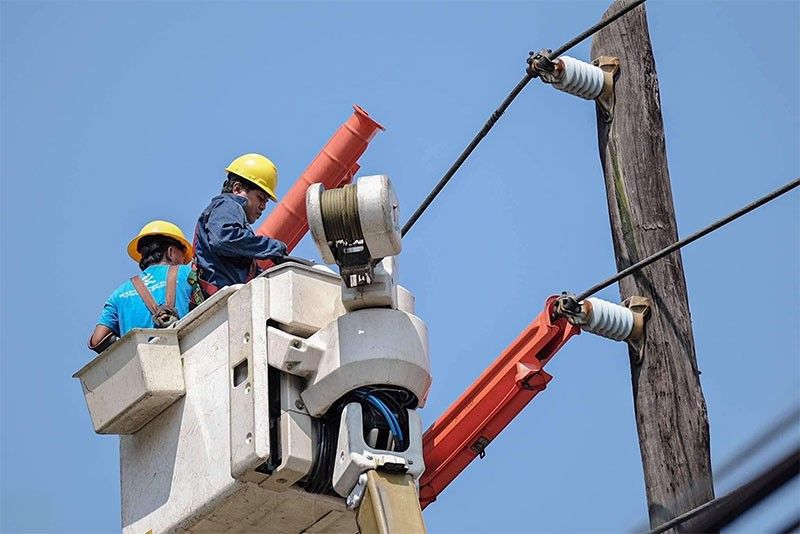Philippines counting on 14.2-GW new power supply by 2030
By Brix Lelis | The Philippine Star | May 18, 2025 12:00am

Linemen balance on electric poles along San Marcelino in Ermita, Manila while installing new distribution lines to enhance electricity supply in the area on November 12, 2024. STAR / Ryan Baldemor
MANILA, Philippines — Over 14,200 megawatts (MW) of new capacity are set to come online by 2030 to strengthen the country’s power supply, according to the Department of Energy.
Latest DOE data showed that renewable energy accounted for the bulk of committed projects between 2025 and 2030, totaling 11,625.32 MW.
Some 2,620.74 MW of new capacity, meanwhile, will come from conventional sources like coal, oil and natural gas.
Committed projects refer to those that have secured firm financial closure, are already under construction or have been awarded through the government’s green energy auction rounds.
For renewables, solar projects dominated the list with an aggregate capacity of 8,431.19 MW, followed by wind (2,233.24 MW), hydropower (836.38 MW), geothermal (74.22 MW) and biomass (50.28 MW).
These projects are aligned with the Marcos administration’s target of expanding the share of renewables in the energy pie to 35 percent by 2030 from the current 22 percent.
Among conventional sources, coal projects remained at the forefront, with a total capacity of 1,570 MW. Natural gas and oil-based projects are poised to contribute 880 MW and 170.74 MW of new capacity, respectively.
The Philippines is still heavily dependent on coal for power generation despite the government’s moratorium on new Greenfield facilities.
In fact, coal accounted for 62 percent of the country’s power generation mix last year, according to a 2024 report by the International Energy Agency.
While there is a strong push to deploy more renewables, the IEA noted that coal’s share in the energy mix is likely to only marginally decrease to 60 percent by 2027.
Aside from power generation assets, the government is also expecting reinforcements from committed battery energy storage system (BESS) projects totaling 594 MW.
A BESS facility stores electricity from power plants or the grid for various applications such as grid stability, energy efficiency and renewable power integration.
The DOE is counting on these projects to augment the country’s power supply amid rising energy demand.
Under the Philippine energy scenario, peak demand is expected to grow by around 5.3 percent annually until 2028.
Source: The Philippine Star
.
